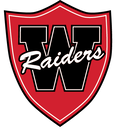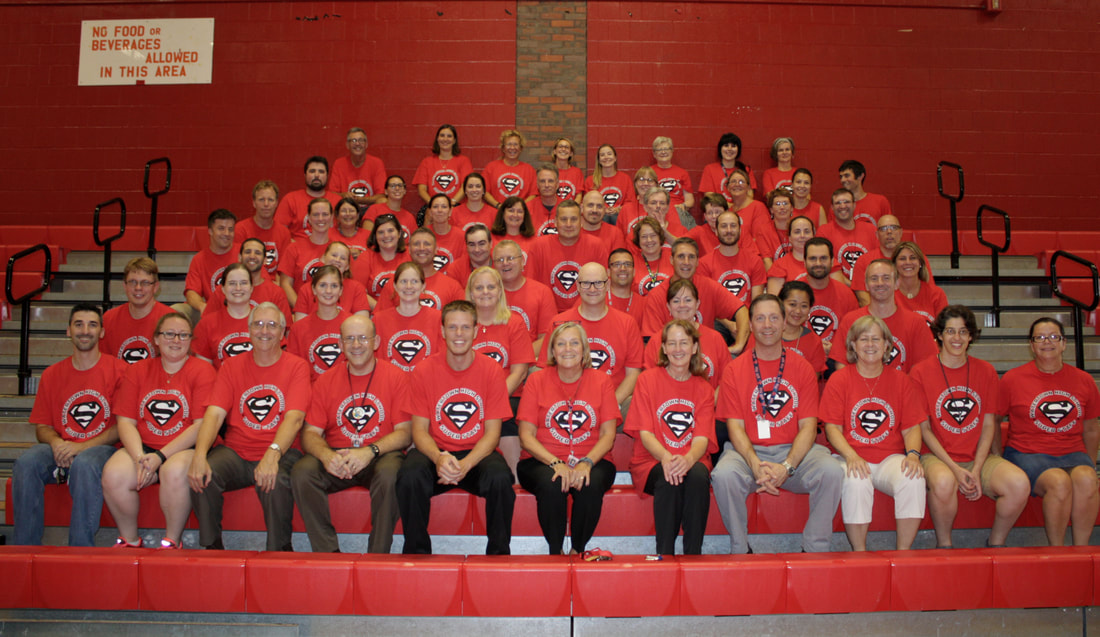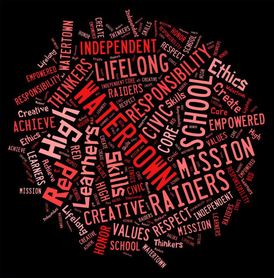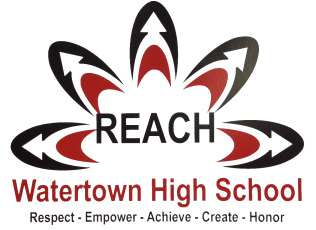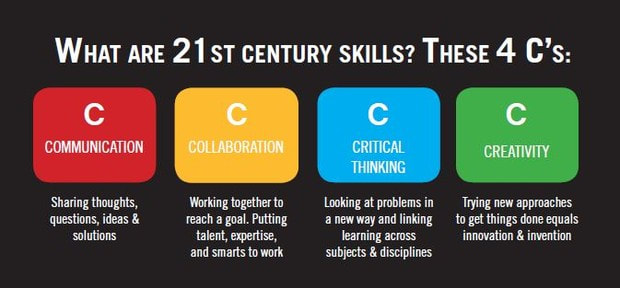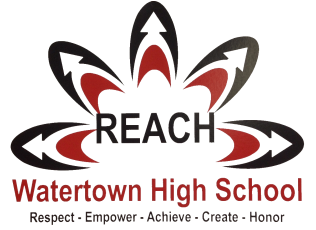Welcome to Watertown High School...Home of the Raiders!
|
50 Columbia Street
Watertown MA 02472 Main Office 617 926-7760 Fax Number 617 926-7723 |
Hours of Operation
Office Hours 7:30am - 3:30pm School Session 8:30am - 3:05pm http://watertown.k12.ma.us/whs/ |
Mission Statement
The mission of Watertown High School is to produce lifelong learners through examination of human achievements, development of essential skills, and promotion of civic responsibility and ethics. We are committed to a rigorous curriculum designed to foster students' growth as creative and independent thinkers. We will provide a safe and nurturing environment in which students and faculty has the opportunity to realize their potential.
Core Values
School-Wide Learning Expectations
|
Effective Oral and Written Communication
Creative and Efficient Problem Solving Gathering and Evaluating Information Analysis and Synthesis of Ideas and Perspective College, Career, and Life Skill Readiness Goal-Directed Persistence Community and Service Orientation Cultural Awareness and Cross-Cultural Skills Social Responsibility and Citizenship |
Progress Report
A student receives a mid-term progress report at the 5th week of each marking period. An academic standard of:
- High Passing
- Passing
- Barely Passing
- Failing
An attendance report is also included on progress reports.
- High Passing
- Passing
- Barely Passing
- Failing
An attendance report is also included on progress reports.
Report Card - Marking
Four times each year a student receives a report card that indicates in letter grades his/her official standing in the
courses he/she is taking.
Marking Scale:
A+, A, A- Exceeds Standards
B+, B, B- Meets Standards
C+, C, C- Meets Minimum Competencies
D+, D, D- Unsatisfactory, Low pass
F Failing
INC Incomplete
EX Medical (cannot participate due to medical condition)
N No Grade (grade could not be determined)
S Satisfactory
U Unsatisfactory, Low Pass
W Withdrew (student withdrew from course)
Comments Used:
In addition, comments are given by each subject teacher to aid in understanding the letter grade.
Report Card Error:
Report card errors should be reported to the teacher involved. Usually, a teacher can correct an incorrect grade
at the next marking period. However, a grade correction form may be obtained in the Guidance Office and,
when signed by the appropriate teacher and the headmaster, a grade can be changed immediately.
courses he/she is taking.
Marking Scale:
A+, A, A- Exceeds Standards
B+, B, B- Meets Standards
C+, C, C- Meets Minimum Competencies
D+, D, D- Unsatisfactory, Low pass
F Failing
INC Incomplete
EX Medical (cannot participate due to medical condition)
N No Grade (grade could not be determined)
S Satisfactory
U Unsatisfactory, Low Pass
W Withdrew (student withdrew from course)
Comments Used:
In addition, comments are given by each subject teacher to aid in understanding the letter grade.
Report Card Error:
Report card errors should be reported to the teacher involved. Usually, a teacher can correct an incorrect grade
at the next marking period. However, a grade correction form may be obtained in the Guidance Office and,
when signed by the appropriate teacher and the headmaster, a grade can be changed immediately.
Graduation Requirements
All students must demonstrate the following competencies.
Reading/Writing/Speaking Skills demonstrated by successful completion of four years of English courses, which include a written thesis paper, at least six pages in length, and oral presentation and defense of a written thesis/project in any discipline or department.
Self-Assessment • Establishing Goals demonstrated by completion of specific activities for grades 9 - 12 as part of the developmental guidance Program. For students in the Class of 2015 and later, this will include successful completion of two years of advisory.
Problem solving and Respect/Concern for Others demonstrated by completion of community service for a minimum of thirty-six hours.
Computer Literacy demonstrated (at a minimum) by competency in word processing, database and spreadsheet applications within the context of academic courses.
All Students must earn 134 credits
In earning the credits, students are required to successfully complete the following courses in the indicated disciplines:
English: 4 yearlong courses, or equivalent
Social Studies: 3 yearlong courses (including two years of U.S. History)
Math: 3 yearlong courses, or equivalent*
Science: 3 yearlong courses, or equivalent
Fine and Performing Arts/Career & Technical Education: 1 yearlong course or 2 semester courses from either of these areas
Physical Education: 1 course per year; minimum of 3 total semester courses
Wellness: 1 semester course in Grade 9
Foreign Languages: 3 yearlong courses, strongly recommended
In addition, all students must pass the Massachusetts Comprehensive Assessment System (MCAS) in Science with a score of 220 or higher; and Mathematics and English Language Arts with a score of 240 on each test.
Reading/Writing/Speaking Skills demonstrated by successful completion of four years of English courses, which include a written thesis paper, at least six pages in length, and oral presentation and defense of a written thesis/project in any discipline or department.
Self-Assessment • Establishing Goals demonstrated by completion of specific activities for grades 9 - 12 as part of the developmental guidance Program. For students in the Class of 2015 and later, this will include successful completion of two years of advisory.
Problem solving and Respect/Concern for Others demonstrated by completion of community service for a minimum of thirty-six hours.
Computer Literacy demonstrated (at a minimum) by competency in word processing, database and spreadsheet applications within the context of academic courses.
All Students must earn 134 credits
In earning the credits, students are required to successfully complete the following courses in the indicated disciplines:
English: 4 yearlong courses, or equivalent
Social Studies: 3 yearlong courses (including two years of U.S. History)
Math: 3 yearlong courses, or equivalent*
Science: 3 yearlong courses, or equivalent
Fine and Performing Arts/Career & Technical Education: 1 yearlong course or 2 semester courses from either of these areas
Physical Education: 1 course per year; minimum of 3 total semester courses
Wellness: 1 semester course in Grade 9
Foreign Languages: 3 yearlong courses, strongly recommended
In addition, all students must pass the Massachusetts Comprehensive Assessment System (MCAS) in Science with a score of 220 or higher; and Mathematics and English Language Arts with a score of 240 on each test.
Mr. Robbins, Digital Media & Communications, Watertown High School, 50 Columbia Street, Watertown, MA 02472
